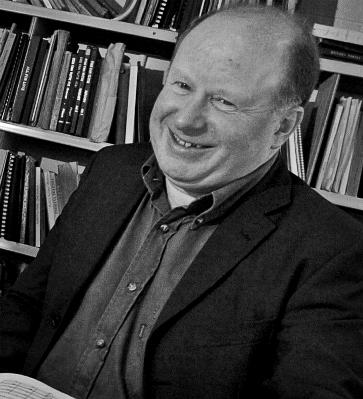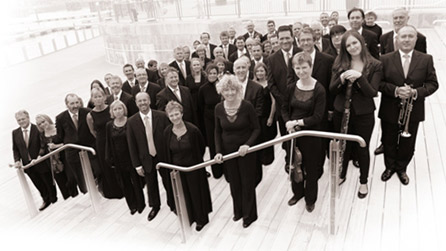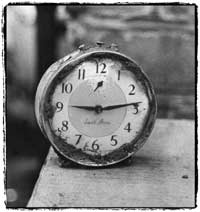Steph Power attends performances by BBC National Orchestra of Wales at the Swansea Festival and Welsh Foundations linked by loss and the Aberfan disaster.
Every day, events occur that have an enormous impact for good or ill on those caught up or affected by them. Most are localised or purely personal, while others ripple outwards more widely into the community, some bearing a cultural significance. Others still are so seismic that they shine or remain raw years after the event itself, becoming embedded in the history and collective consciousness of an entire people and time. Such an event in tragic terms was the disaster at Aberfan, on 21 October 1966, when a mountain of coal waste engulfed Pantglas Junior School and nearby houses, killing 116 children and 28 adults.
Much has been written over the years about the irreplaceable loss suffered by the people of Aberfan; about their indomitable spirit, supported by others in the south Wales mining communities especially, in the face of the then National Coal Board’s incompetence and criminal neglect. Just two decades later, the brutal policies of an ideologically-driven, right-wing UK government would bring about the decimation of the coal industry itself, and with it an entire way of life. For some, no doubt it remains hard not to see Aberfan’s tsunami of spoil presaging a wider social tragedy that will never fully be acknowledged at official levels – much less learned from, if we look through the lens of the current steel crisis and more; not least at the vulnerability of children to the too-often egregious conduct or inaction of adults.

Beyond politics, of course it is the myriad everyday human stories of loss and survival, despair and hope that comprise the soul of any community. Fifty years on from Aberfan, it is the people at the heart of the tragedy that composer Joseph Davies sought to remember in a moving orchestral song cycle, premiered at the Swansea International Festival by soprano Fflur Wyn and the BBC National Orchestra of Wales, conducted by Siân Edwards. The Shortest Day sets three specially-written poems by Dr. Rowan Williams, narrated from the viewpoint of a witness to the unfolding disaster, but who is powerless to intervene from where they watch, outside linear time. Davies responds with three, thoughtfully conceived songs reminiscent in emotional scope to Mahler’s Kindertotenlieder: ‘Midwinter’, ‘Prayer’ and ‘At Sea’.
Each was evocatively played by the BBC NOW, full of unusual ensemble pairings and the expressive contrast at which these musicians excel. Most striking overall was Davies’ ability, in music of dissonant, seemingly paradoxical beauty, to render the sense of an ordinary day turned to horror. The timing of the slag-heap’s collapse could not have been more cruel, just as the shortened school-day was about to end, on a Friday before half-term. Time – effectively – was stopped and yet did, and must, continue to run for those left behind, just as the work’s middle movement voices the fervent hope, ‘Let there have been a second/ before the weight fell/ when they sensed … A hand’s touch … announcing silently/ a way in/ To the last room’.
In an unintended reflection of the futility of such a plea in a vast, unfeeling cosmos, Wyn’s voice was sometimes overpowered by the sheer force of the orchestra behind her. Yet throughout, she communicated passionate feeling, with echoes of Myfanwy and other Welsh songs peppering a dense, almost Bartókian colouristic score. Clear in structure and empathic impulse, it was an impressively mature offering from a young composer, yet to be born at the time of the catastrophe but sensitive to its resonance for successive generations as well as for those survivors and bereaved relatives alive today.
*****

How quickly the present turns to memory. Davies has been a tutor at the Royal Welsh College of Music and Drama since 2010, where he once benefited, as did so many other composers over the years, from the impeccable guidance of his teacher-turned-colleague, the composer and writer, Peter Reynolds. Peter would have been eight years old at the time of the Aberfan disaster, bright with a life so many others lost that terrible day. He was just 58 when he collapsed and died suddenly at home in Cardiff on 11 October 2016; a huge blow to Welsh music, which he championed, and to contemporary music in particular, about which he was passionate.
Generous, patient, witty and kind, Peter was hugely erudite, and his facility for recalling dates, times, names and numbers was legendary; he would have noted and tucked away for some future, typically fascinating programme note the random correlation between his year of birth, 1958, and the age he died; too young and, for those left behind who loved him and his music, with the sense of so much promise yet to come following a lifetime of facilitating for others opportunities he had only recently begun to explore on his own behalf. Rarely has the phrase ‘unsung hero’ been more fitting than with Peter, whose presence graced so many committees, concerts, festivals and creative projects for and on behalf of music in Wales. Seldom in the foreground but working tirelessly behind the scenes, he generated a huge network of contacts who will forever be in his debt, making things happen for composers, musicians and organisations across Wales – and making friends of all ages for whom he always had time, no matter how pressed he himself might be.
Peter’s music was often bright and quirky, full of adventure and a playful sense of the absurd. Renowned as the holder of the Guinness Book of Record’s world’s shortest opera for the 4-minute, 1993 The Sand of Time, his 2010 piece The Head of Brass, for instance (this too to a text by Simon Rees, scored for saxophone quartet and narrator), explores an Elizabethan stage comedy in which a friar labours to create from brass a supernatural head that might protect England from harm, but who falls asleep on the job. Of late (in works such as his 2012 String Quartet No. 2 footsteps quiet in the shadows…) he was beginning to express more fully a highly personal aspect that has always been present in his music, of exquisite yet rigorous, gentle stillness. Here he reached back to his own student days and his beloved Morton Feldman. Often, his music showed a love of literature and architecture, in particular old Welsh churches, which he had begun to explore in site specific works designed for intimate, one-off occasions; performed perhaps in the early morning or late at night, when a certain magic might create a resonance across the ages for some brief moments in the present for those gathered. His 2015 multimedia piece, Cippyn, made around a deserted chapel near Cardigan, is both a film and an installation piece for double bass and electronics.
*****

Peter excelled at the miniature form, whether instrumental or in song. He rarely wrote for orchestra, or even large ensemble. But this did not stop him from adoring an enormous range of orchestral music, about which his knowledge was encyclopedic. The BBC NOW was in a very real sense his life blood as a composer from a young age, as he remarked in the introduction to his 2009 book, BBC National Orchestra & Chorus of Wales: A Celebration*:
‘[BBC NOW] has been a part of my life since I first attended their lunchtime concerts at Cardiff’s City Hall as a schoolboy, back in the early 1970s. I encountered many staples of the orchestral repertoire for the very first time in performances they gave.’
As a programme writer and more, his association with the orchestra goes back over two decades; and it was he who provided the notes for their 2016-17 Welsh Foundations series of concerts, the first of which, at Hoddinott Hall on October 18, BBC NOW dedicated to him. He would have found the programme itself enormously appealing and worthwhile; showcasing three composers who not only laid the foundations of Welsh classical composition in Wales in the 20th century, but who were significant on any terms, achieving international recognition in their life time, yet deserving of a far wider audience in the 21st century. Alongside Daniel Jones and the celebrated teacher-composers Alun Hoddinott and William Mathias, we also heard contemporary music by John Hardy, winner of five BAFTA Cymru awards – and current Head of Composition at the RWCMD, Peter’s own department.
Peter often remarked how marvellously the orchestra had grown over the years into the world-class ensemble it is today, comprising a team of superb players able to tackle a diverse range of repertoire with relaxed, virtuoso ease. Under the baton of Grant Llewellyn (a conductor who himself deserves more praise as an exemplary exponent of this and so much other repertoire), they played magnificently in this afternoon concert.
Heft and sinew were the hallmarks, with blazing colour and a plethora of finely nuanced details striking across the programme. Jones’s 1956 Overture, ‘Ieuenctid’, written for a National Youth Orchestra of Wales for whom he rightly made no age concessions, was full of verve and swagger, brilliantly orchestrated and played in kind. The three-movement Hoddinott Horn Concerto (1969) which followed was given an outstanding, warmly bright-dark reading by soloist, Alec Frank-Gimmell and orchestra. Playing with notions of foreground and background, the score makes the most of the unique quality of the horn to appear as if coming from different directions, fore, aft and within the ensemble. Enigmatic harmonies balanced spiky rhythms almost reminiscent of Janáček yet always distinctive and crisply inventive in form.
Hardy’s Blue Letters from Tanganyika proved picturesque and affectionate in its homage to the composer’s mother, and specifically her travels in East Africa, where she cherished the multifaceted people and landscapes that she encountered there. Cast in four, vivid movements, the work led with a lyrical sweep to a second half comprising the main event this afternoon: Mathias’s Symphony No 1.
Composed in 1965 for the Llandaff Festival – a year before the tragedy at Aberfan – it seems extraordinary that this, confident, optimistic work should have been only Mathias’s first symphony. Brimming with vitality, its four movements reveal a composer just 30-odd years old but already experienced across a range of genres and comfortable in his own musical skin. Thematic development is taut yet generously inventive, with explosive energy and bustling movement from percussion to strings, brass to woodwind. Here, Llewellyn ensured that the third, more expansive adagio movement took its rightful place at the rhapsodic core of the work, allowing tenderness to colour the drama without a hint of mawkishness or loss of overall momentum. Decisive, youthful and exciting, Peter would have loved it – and been gratified to see that BBC NOW is utilising that energy to embark on a series of concerts showcasing these and other excellent recent and contemporary composers of Wales.
*Following the orchestra’s 80th anniversary and to mark the move to its current home at BBC Hoddinott Hall.
Header image: an alarm clock, fixed at the time disaster struck, was recovered from the spoil which engulfed Pantglas Junior School on 21 October 1966.
Swansea Festival
Brangwyn Hall, Swansea, 8 October 2016
BBC National Orchestra of Wales
Soprano, Fflur Wyn / Conductor, Siân Edwards
Welsh Foundations 1
BBC Hoddinott Hall, Wales Millennium Centre, Cardiff, 18 October 2016
BBC National Orchestra of Wales
Horn, Alec Frank-Gemmill / Conductor, Grant Llewellyn












